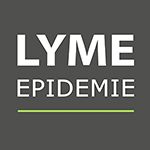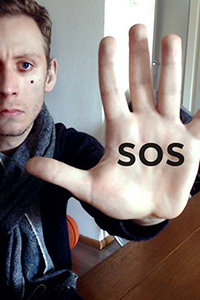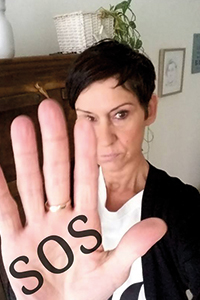THE IMPACT
OF LYME
OF LYME
Lyme disease is the fastest growing infectious disease in the world. The World Health Organization even speaks of a new epidemic, which caused a lot of suffering and a huge financial burden to society.
It is inevitable that Lyme have profound implications for our society. How we deal with this politically, in our medical care and health insurance, is not clear because of different perceptions, attitudes and interests.
This has a huge impact on Lyme disease patients. Are they really sick or not? Can they be treated? Will their health insurance company compensate treatments? Are they entitled to a benefit? Many questions emerge.
Politics:
In 2014, a petition with 70,000 signatures demanded the government to enable new treatments according to ILADS guidelines. So far, this has brought no result.
However, people were promised an information and treatment center, which has not been created yet…
Instead of improving, the situation had deteriorated. In the beginning of 2016 the ILADS guidelines were swept off the table without scientific arguments.
Politicians rightly stated that there is far too little knowledge about Lyme disease in the Netherlands. In 2014, the Minister of the in the House of Representatives (Tweede Kamer) admitted that chronic Lyme does exist, but refused formal recognition.
This means that doctors are not allowed to work according to the ILADS guidelines, patients are not entitled to benefits, homecare or other facilities. This indicate the harrowing and desperate situation facing 45% of Lyme patients who say they have thought this past year about committing suicide.
The quality of life of persistent Lyme patients is very low. This has been researched and shown by the Radboud University Medical Centre in Nijmegen. Quality of life experienced by the general population is expressed with the number 50. Diabetics with a lower quality of life score 42 and cancer patients 41. Patients with persistent Lyme score merely 32.
On several occasions it has been brought to the attention of the House of Representatives ‘Tweede Kamer’ Article 25 about basic human rights. Unfortunately, without any effect.
Article 25 states:
“Everyone has the right to a standard of living adequate for the health and well-being of himself and of his family, including food, clothing, housing and medical care and necessary social services, and the right to security in the event of unemployment, sickness, disability, widowhood, old age or other lack of livelihood in circumstances beyond his control. “
Socially
As the government continues to deny the existence of Chronic Lyme disease, many patients have to face social problems such as lack of understanding in the social environment.
Not everyone believes that the patient is sick because there is no clear diagnosis. Characteristic of the disease is that patients look healthy from the outside.
Marriages, families and friendships come under pressure and many patients do not get help, because they are “not sick.”
Not being able to work, receiving no benefit or having their benefits reduced and having to pay high bills result in severe poverty. Frequently, patients have to depend on family and friends to provide for their livelihood.
The high cost of healthcare due to many miss diagnoses and not treating the correct diagnosis are huge for society. You can think about, for instance about heart surgery or knee surgery that are reimbursed.
This situation is unsustainable; there are too many people outside the system. Every day there are more patients. Therefore, we can speak of an epidemic.
“There are a lot of people who are struggling (with Lyme disease) far worse than I am. People with it are bedridden or have lost their memory or have heart problems. It’s just a terrible, terrible disease.”
Elena Delle Donne, professional basketbalplayer, Lyme-patient
This page is also available in:
 Français
Français  Nederlands
Nederlands













